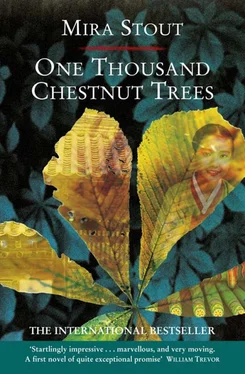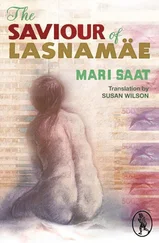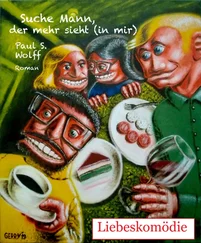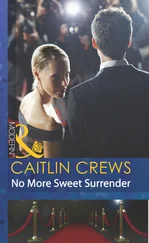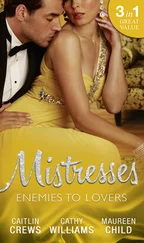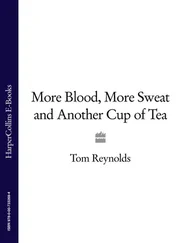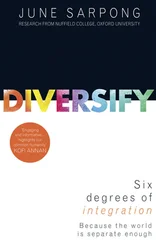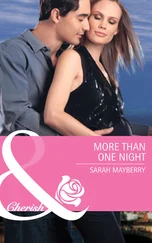‘Ma …’
‘It’s true, you always …’
‘I know, I should travel more lightly.’
I rolled my eyes at Dad, who smiled. I embraced him goodbye, and he clasped me awkwardly, his cheek rough, big shoulders hunching down to reach me, his usual silence containing patient affection. His clothes smelled of turpentine. My mother looked very serious and her eyes, level with mine, were liquid with tears.
‘What can I tell you? … Be good. Don’t impose on anyone … Make sure to say hello to everyone. I … Too bad I can’t go with you … Write.’
I threw my arms around her small, slightly rigid frame, and squeezed her tightly until she softened. I felt a single sob escape her body. My past petty hatreds melted into intense regret and crooked love for her.
‘I’ll be back, don’t worry. I’ll tell you everything … I want to find the temple on Mount Sorak. And the chestnut trees. I’m going to find them.’
I don’t know what made me mention the temple or the trees. It just came out. I swung a satchel over my shoulder and headed for passport control. I looked back, and my mother and father waved, their gestures small and uncertain. My mother looked forlorn. Suddenly she waved again, this time bigger. She waved again and again.
PART TWO Mother
CHAPTER FIVE Et in Arcadia Ego
Korea Kangwon Province 1936
I looked up at the sky. It was all of heaven to me, and the world. Korea was the world; wide and clear and blue. And it jiggled. I was sitting in the basket of my father’s bicycle, with my head tipped back, laughing. The rays of the sun pierced through my eyes, blinding me pleasantly.
The pebbles on the dirt track made the handlebars judder. My father was not looking at the sky, nor was he laughing. He looked very serious, concentrating on the road ahead. I tilted my head from side to side in the basket, to make him smile.
We were on our way to the marketplace in Yangyang, a few miles away from home. I loved this ritual. For a few hours, it was just my father and me. No interference from my naughty brother or crying baby sister, and he bought me rice toffee. Usually it was the eldest boy who had the honour of escorting a father to market, but Jin-ho made my father so cross, that I, being next eldest, and nearly six years old, inherited the fun.
I wish I could tell my daughter the way it was then. But where would I begin? Seeing her to the airport, all that I left behind comes flooding back as we drive back through this Northern landscape, a landscape that I now accept as having little to do with me. I am a small leaf, blown here by history.
Riding in the big basket of my father’s bicycle, everything was golden. It was spring. Sun glistened upon the pine needles, it danced in the poet’s stream in the village, and it warmed the barley grasses of the fields on our family estate. The breeze washed the scent of jasmine and acacia past my eager nostrils. Exploded cherry blossom hung like pink popcorn in the boughs of trees along the road winding down to Yangyang. There was a slight mist in the valley, and the light was soft, a softness that would be gone by June.
In the noisy marketplace we parked the bicycle outside the sweet shop, and father bought the toffee for us children. I got to carry the little paper packet, and was also entitled to pick out a sweet or two as we promenaded round the market.
The square in Yangyang was like a circus to me. Awnings, tents, carts overflowing with goods, and well-groomed livestock crowded the centre. Villagers jostled each other, and picked their way between tables and groundcloths loaded with bountiful baskets of grain, displays of glistening fish and shellfish, dried cuttlefish and octopus, seaweed, heaped kimchi, pine nuts and chestnuts, fruit, vegetables, rice cakes and dainties. Stalls offered bolts of rainbow-coloured silks, fine handwoven linen and cheap cotton muslin, native canoe-shaped rubber slippers, metal chopsticks, brass, porcelain and celadon bowls, books, lacquer trays and chests, mother-of-pearl inlaid boxes, ink and inkstones, rice paper, linen, calligraphy brushes, ivory and tortoiseshell combs. Familiar vendors crowed and yelled their bargain prices, competing with lowing cows and squawking fowl.
I stared boldly at the other children strapped to their mothers’ backs or holding their grandmothers’ hands. They looked much more babyish than me; I was allowed to roam freely by my father’s side, making what I believed to be adult conversation.
We bumped into Baby Uncle near the well in the square. His name was Gong-lae, but I called him Baby Uncle, as he was the youngest of the Min brothers. Bending down, Uncle pinched my cheek and stole a piece of toffee in one motion. Then my father told me to wait for him by the willow tree while he and Baby Uncle went into a small office to deliver some papers to a colleague. Uncle bought me a rice cake. I sat down near an old grandmother, and inspected the cake, which I dismantled and ate kernel by kernel to make it last as long as possible, and surveyed the crowd, quite giddy with happiness.
My father eventually came out of the little building, and furtively tucked an envelope into his breast pocket. He looked a little happier than before, and swung my hand in his as we walked back down the street to the bicycle. With father’s help, I squashed back into the basket, legs dangling out, and we pushed off heavily onto the dusty track, wobbling off for a few yards as we headed back home.
I did not realise then how terrible those spring days were for my father. That day, as every day since June 1910, we were living under a military dictatorship. Japan, fresh from their victory over Russia, had begun colonizing Korea. Our Emperor Kojong was reduced to the status of King. The same blue sky that entranced me was oppressive to father. For him, nothing would be right and good until Korea was free.
Here, at market, father, aboji, perceived a very different scene to the one I did. Yangyang had once been fairly rich. Now it was poorer and shabbier. On this Eastern coast, there was bounteous fishing and farming, but the best catch and produce were now skimmed off and profits channelled to the occupying Japanese government in Seoul.
Our clan, the Min, were the chief landowners of Kangwon Province, our estates straddling what is now both North and South Korea. We had been rulers here for centuries. Over the course of my father’s childhood he had seen our ancestors’ ancient hereditary and honorary titles stripped from us, and for a pittance, we had been forced to sell major land holdings to the Japanese. We were one of the last yangban families to remain in the province. Father felt that we could not leave, so deep were our roots here. Less fortunate landowners and the middle classes suffered the seizure of their land without payment, and those who opposed this were shot by the Japanese. Many had fled to Manchuria and Siberia to avoid impoverishment and Japanese persecution. Only bankrupt commoners and former serfs stayed on.
The market square was nearly deserted compared to its former self, the grass near the well was overgrown and ragged, even the poets’ stream was now a muddy trickle, drying up in its bed. Japanese officials disguised as Korean peasants roamed the streets of Yangyang for signs of local underground activism, but fooled no one with their blatantly Japanese features, squatter physiques, and pidgin Hangul . But the authorities were correct to be worried about the underground resistance movement. My father and Baby Uncle had that morning been attending an Independence meeting in the ironmonger’s storeroom. Both of them had already been sent to prison once for their efforts.
Yet naturally, I knew nothing then of my father’s political secrets. The grown-up world was a remote kingdom in the eyes of Korean children. One trusted, accepted, and obeyed the word of parents and elders. This was Confucian law.
Читать дальше
